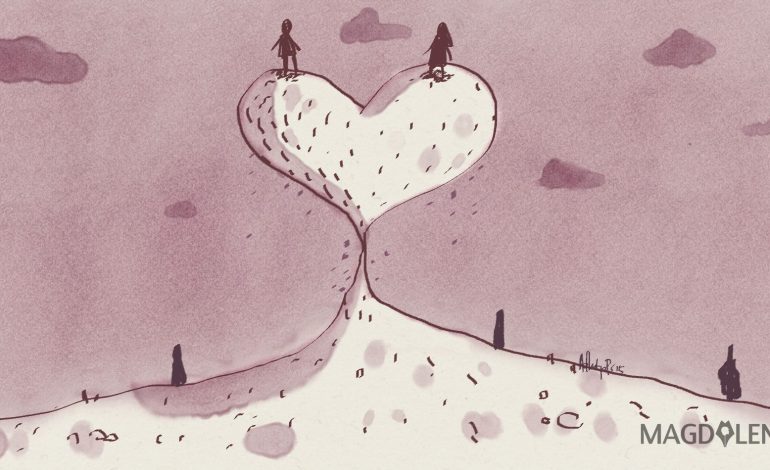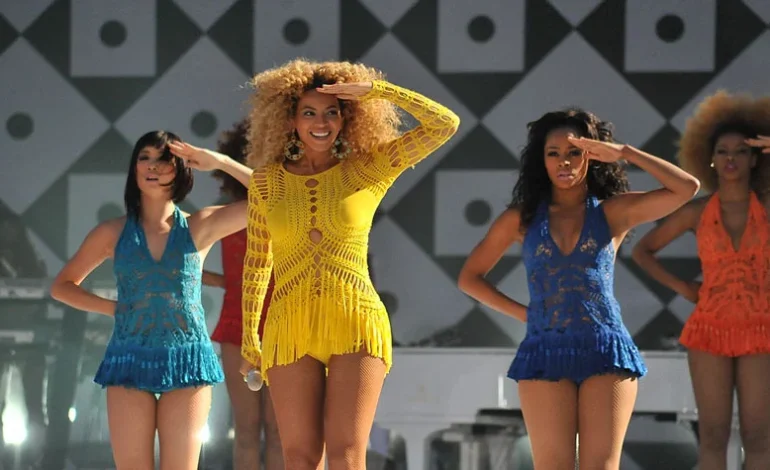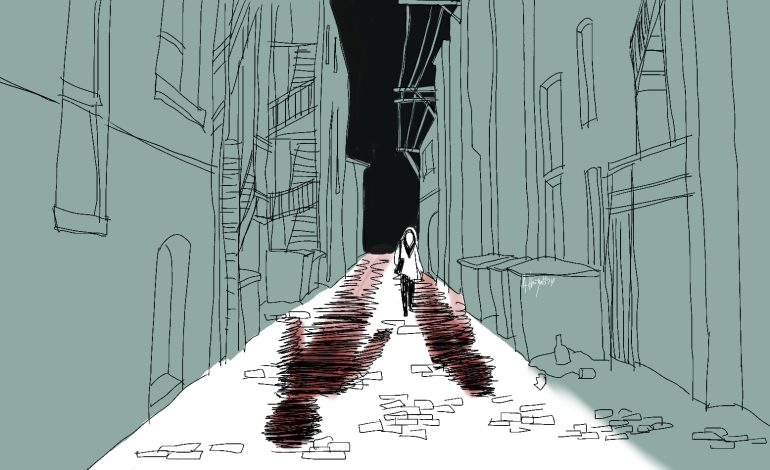See You Next Year, Valentine’s Day Controversies

Did you remember Valentine’s Day 2017? Yes? I take it because you had a wonderful date or intimate moment with significant other. Or maybe you had a crazy night out with the squad. Or you were mesmerized by the dazzling eyes and the flowing hair of your dream lover as seen on Netflix. Or you ate all the chocolates that you had bought yourselves.
In Indonesia, we know it’s V-Day when the war on Valentine’s Day has begun. Clerics and officials would warn teenagers and Muslims against celebrating Valentine’s Day. Because it is against Eastern values. Because it’s a Christian ritual. Because it promotes promiscuity.
And then every media would feature a piece on the origin of the Valentine’s Day. It’s named after a Christian saint who wed lovers, and it was originally a Roman fertility festival before capitalism and globalization made it celebrated worldwide with chocolate, roses, and heart decorations. Unfortunately, those articles and videos, while informative for the public, are never enough to enlighten the Valentine’s Day haters. Instead, it reinforces their fear that celebrating the day is amount to celebrating Christianity or paganism and free sex.
So haters gonna hate. There are certainly some disturbing consequences from this anti-Valentine’s Day stunt. First, Indonesia becomes an international laughing stock for a day. Second, convenience store staff (bless their hearts) have to put up with bullying mayors and religious thugs cashing in on the “minimarket sells condoms!” scare. Finally, health workers and activists have to endure with rising blood pressures, as authorities, again and again, spread the very wrong message that buying condom = dangerous sex. As if authorities simply believe that if there’s no condom, then people won’t have sex.
Eventually, Valentine’s Day controversy becomes a part of Indonesia’s culture war. The day is forgettable anyway, and it’s not a public holiday anywhere in the world. It is only important for supermarkets, gift shops, restaurants, and wedding organizers (let’s say it makes me hate Facebook Memories even more). But with the way it is condemned in Indonesia, you would think it is a sex festival.
Yes, several Christian churches dedicate 14th February to Saints Valentine, in memory of at least two Christian priests called Valentine who were killed by Roman authorities or mobs during the 3rd century. How it became a celebration of romantic love is murky, however. Popular stories connected it to some Roman feast of fertility, or medieval English and French poems celebrating birds mating. What is quite certain is the “Rose is red, violet is blue” line was printed in 1784 in a nursery rhyme book.
The relations between Valentine’s Day and the romance industry began in 19th century with mass-produced greeting cards, and massive sales of roses and chocolates followed a century later. Valentine’s Day greeting cards successfully evolved into e-cards in the 21st century, and the Anglican Church in Britain embraced the romantic link to the Valentine’s Day by holding renewal of marriage vows and prayer for singles.
Valentine’s Day is like the romantic, frilly sister to the gothic Halloween. If Halloween is a grim welcome for winter, Valentine’s Day is a celebration of the end of winter. Both occasions were romanticized by 19th century British writers, commercialized by their industrialist grandchildren in London and New York City, and now have gone global with chocolates, toys, and dinner packages.
There are also critics of Halloween in Indonesia, but it seems that Valentine’s Day is hated even more, as newspapers print annual statements from officials treating it as a security threat. I think the only explanation is because Valentine’s Day is about romance, love, and sex.
While criticism against Valentine’s Day in Indonesia is mainly driven by conservative Muslims, Christian institutions here also attempt to tone down the romantic side of Valentine’s Day. Ornaments might be permitted in schools, students would be reminded that the greatest love is to God, and then to parents. Some schools would warn students against celebrating the day “excessively”.
The question that also comes year after year in February is whether radical Islam is getting stronger in Indonesia or not. Of course, people who condemn Valentine’s Day say that it’s not only harmful for Muslims, but also to the public morality and for the economy (from the consumer’s, not business’, perspective).
But, wait, the hatred is even stronger in India, where V-Day is not only condemned by Muslim figures but also by Hindus and Marxists. The latter describe it as a form of neocolonialism, while the former believe it’s against family values. Malaysian and Pakistani authorities have condemned the day too, even arresting people for “celebrating” it (in Malaysia) and formally banning public celebration (in Pakistan).
To say that Valentine’s Day is against Eastern culture, however, is very wrong. Valentine’s Day is loved in East Asia, to the point that March 14 is named the second Valentine’s Day. Of course, this is a boon for the chocolate industry, in addition to those other lucrative days for food and entertainment industries: the Singles’ Day on 11/11, the Night of Sevens (7/7) in the lunar calendar, and even Christmas Eve. If Muslim Asia seems to fear the celebration of love, Confucian Asia can’t seem to get enough of it.
Apart from the poor convenience store clerks who had to deal with authorities whose priorities are all wrong, this year’s Valentine Day passed peacefully in Indonesia and it seems no one cares anymore if you buy a condom, or if you have consensual sex without contraception (please don’t, unless you intend to get pregnant), or why the chocolates are not on sale yet. But for next year, you can be sure that the anti-Valentine’s Day sentiment would be all over the media again. And, hopefully, it, too, will turn out to be nothing but a bark.
Read Mario’s piece on being a Christian and a feminist and follow @mariorustan on Twitter.






















